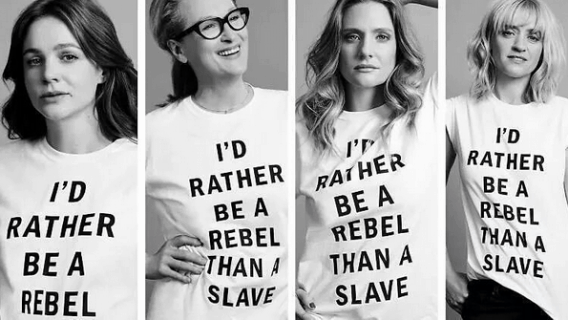Kesha & JoJo: How They’re Taking Back the Power (& Their Careers)

This past week, I had the pleasure of seeing Kesha perform for the first time. Although it was only an hour-long performance at a college, preceded by two awful hours of standing in line only to be turned away until we had placed our purses in the trunk of our car (an extremely frustrating and sexist situation that should be the subject of its own article), it was beyond inspiring.
Though it was reminiscent of her 2016 Warsaw performance detailed in The Times, complete with dancing dinosaur heads, it didn’t feel any less authentic. Stripping down to a fringed onesie and cowboy boots, Kesha told us, her fans, to leave our troubles at the door: “Anything outside of these four walls doesn’t matter tonight. I’m talking about your f*cking ex-boyfriend. I’m talking about my lawsuit. F*ck that shit.” Then she sprayed the crowd with glitter.
What’s Going On?
Unless you’ve been under a rock for the last three years, you’ve heard about the lawsuits (yes, multiple) between singer Kesha and her producer, Dr. Luke. Among the claims of emotional, physical, and sexual abuse, the lawsuit details how Dr. Luke’s efforts to control Kesha’s career and image led to her checking into rehab with an eating disorder.
Her contract with him dictates that she maintain the image he cultivated, that she remain “reasonably consistent in concept and style” to that of her first album (New York Times). Beyond keeping her from releasing new music, especially any with a new sound or direction, the continuing legal battles and upholding of her contract keep Kesha tied to her abuser. They keep Kesha, Ke$ha.
Flashback to the early 2000s and we find another troubled pop singer, JoJo. At only 13 years old, she was topping the charts with hits like “Leave (Get Out)” and “Too Little Too Late.” But success didn’t last long for JoJo, who spent seven years in legal battles with her label. Just like Kesha, JoJo’s label controlled her image. She had signed away her ability to be herself.
Unlike Kesha, JoJo’s tumultuous journey had a happy ending in sight. In 2016, she released her first full album in almost 10 years, titled Mad Love. Describing the album, she told Fader: “This album is more for my fans than anything else, who have stuck with me through times where I couldn’t see a light at the end of the tunnel, or I thought, Who am I if I’m not doing this? They really gave me the strength to continue and to stay in a positive mind space.”
Kesha similarly shares this love and appreciation for her fans; during her concert, she took the time to thank us through her tears and take selfies with most of the front row before the show ended. The sentiment is clear: I couldn’t be doing this without you.
How Did This Happen?
JoJo was 13 when she signed her label contract. She was a child. (As if high school and puberty aren’t tough enough.) And when her label mysteriously started ignoring her and refusing to let her release new music, she was effectively shut up. As an artist, to go from sharing her passion and her music with thousands of fans to not even being allowed to record, JoJo lapsed into a deep depression. She treated herself with alcohol “to get out of [her] mind” (Rolling Stone).
Relations with her mother, who was also her manager, became strained after JoJo hired someone else to run the business side of her career. She began doing whatever songs the label wanted in hopes that they would release them (many stayed in limbo and are now in possession of her previous label, Blackground, and may never be released). The 10 years between her second and third album were spent fighting to keep her career and her well being afloat. The news that the label was dropping their countersuit was the reprieve she had desperately hoped for. “I just cried,” she told Glamour. “I didn’t believe it for a long time.”
Imagine being legally stuck in your teens; unable to change your look, your brand, what you’re known for, what you talk about and do. No one is the same person they were a few years ago, especially when going through our angsty teen years. I for one am glad I’m allowed to grow and change, because if I had to stay the same person as I was at 16, 18, or even 21, I’d scream. I’m not that person anymore. That girl had different priorities, different passions, different people she surrounded herself with. She was dramatic and immature (and don’t even get me started on my emo poetry phase). What I want and how I express myself have evolved. It’s the same for Kesha and JoJo, and it’s the same for all women. No one should be able to dictate who we are.
When Kesha signed her deal at 18, her future looked bright. But it quickly became clear that her career was not Dr. Luke’s first priority — she did some backup vocals and a few videos, but recording her own music was off the table. Kesha tried hiring a company to find her another deal that would allow her to build her own brand, but her existing contract with Dr. Luke kept this from happening. It wasn’t until she appeared on Flo Rida’s “Right Round” track four years later that she began to get the recognition she deserved.
When her first album, Animal, was released in 2010, it was a hit; the party album of the year. But Kesha hadn’t wanted to produce just “fun.” “I was like, ‘I am fun, but I’m a lot of other things,’” she said in her 2016 New York Times interview. “But Luke’s like: ‘No, you’re fun. That’s all you are for your first record.’” In particular, “TiK ToK” was originally more ironic, but Luke had in mind a different tone. “I remember specifically him saying: ‘Make it more dumb. Make it more stupid. Make it more simple, just dumb.’”
That sentiment ran through Kesha’s next two albums with Dr. Luke. It was during this time that the abuse began. Comments on her weight, arguments over lyrics and image, and unwanted sexual advances peppered the next four years until Kesha checked herself into rehab for an eating disorder. It was then that she made the decision to break away from Dr. Luke and her mandated image. “I was taking back my strength, and I was taking back my voice, and taking back my power, taking back my body. I’m just taking back my [expletive] life” (New York Times).
Taking back my power. That’s exactly what I felt like doing after Kesha sang her last note that night, glitter falling through the air and people screaming around me. Her concert was undeniably fun — Kesha will always be that. But the truth of Kesha, the heart of her, was made bare as she sang an emotional cover of Lesley Gore’s “You Don’t Own Me”. Yes, Kesha is a free spirit, a partier, a wild child. But she is also hurt, vulnerable, real. Just like you and me, she has many sides. And preventing her from sharing them with us is a crime.
Why Should We Care?
As a woman who has grown up in a world where most women can recall times when they’ve been catcalled, harassed, intimidated, or even violated, celebrity women’s success has provided hope. Not hope that I will one day be as famous as Taylor Swift or as goddess-level as Blake Lively. But I hope that whenever I feel limited in my ability to voice injustices or enact change, there are women like Emma Watson and Malala who use their power to put the world’s attention on more important issues than themselves. I hope that women the world actually listens to are speaking out about human trafficking, privacy rights, the gender pay gap, domestic violence, sexual assault, and inequality. I hope that we can do this together.
What the stories of Kesha and JoJo tell me are that even these women are targets. It tells me that the world is still not ready to take us seriously about sexual assault and rape. It tells me that the world is okay with men and labels and politicians trying to control women and shut them up. It tells me that the fight is not over, and that it may not be for a very long time. But most of all, it tells me not to give up. It tells me to love myself, and screw anyone who says otherwise.
Kesha is not “celebrity thin.” This was the second thing I noticed about her at the concert as she stripped from her opening outfit of jacket and long pants, revealing the scanter outfit underneath. The first thing I noticed was that she was beautiful; healthy, energetic, and real. She looked like women I see every day — women who eat carbs and live life to its fullest and don’t count calories, only taste. She looked like a woman who’s found a way to love herself. “Finding the strength to come forward about those things is not easy. But maybe, by telling my story, I can help someone else going through tough times,” Kesha revealed to Rolling Stone. “In the past, I always felt like I was trying to prove something. Now, I’m writing what I want to share with the world, rather than trying to give the world what it wants. For better or worse, I’m just me.”
The concert I attended was put on by the real Kesha. As she shared her music with her fans, she opened her heart to us and let out some of her sadness, her frustration. She told us she loved us, that we were all beautiful. Packed with fast-spitting lyrics, kooky props, and, of course, tons of glitter, the Kesha show was fun. But it was also freeing. It was hopeful.
In her Rolling Stone interview, JoJo shared some advice for Kesha: “I think her going out on the road is a great idea, so she’s able to connect with the people who are supporting her and getting that life and love…I would say it’s to control what you can control and put yourself in the best position to get out of your contract. I think she’s doing everything that she can, and I’m sure she’s going to be fine.” It’s a lovely concept, that one day all of this will be behind her. It’s what we all tell ourselves when the going gets rough. And let’s face it, girls—it gets rough. JoJo has the right idea. Connecting with people who support us, getting and giving love, that’s how we deal. It’s how we put ourselves in the best position to triumph over all our obstacles.
What Can We Do About It?
As you listen to JoJo’s new album or read about Kesha’s lawsuit, remember what their experiences can teach you. The world is full of people who will try to control you, hurt you, or silence you. Don’t give those people power over you. Even if it feels like the world has won, it hasn’t. It’s not over until you give up. As long as we empower and love each other, we can hope. If we decide to build each other up and help each other out, there’s reason to fight on. JoJo’s and Kesha’s fans kept them supported and loved when it would have been so easy to give up. They connected with them and reminded them that they were not alone, even through years of stagnant careers and setbacks. People like me and you are partly responsible for JoJo’s comeback and Kesha’s ability to tour and keep her lawsuit going. We can affect so many other people’s battles. That’s power.
Never forget that you have the power to love yourself, too. Throughout their struggles, Kesha and JoJo learned how to love themselves even when others didn’t. It’s something we all need to learn, myself included. So whenever you’re down and out, being too hard on yourself, or just feeling low, look at the best parts of yourself, the parts you like the most. Look to your role models. Look to your friends. Look to other women. Be that woman others know they can look to. Be a friend. Be a role model. Show others how to fight on by learning to love yourself first. After all, there’s one thing the world can never change.
Love is free. There is mad love, all around. Claim that love. Claim your power.
Follow Taylor on Twitter: @taylorleahicks
Featured image via Kesha and JoJo
Last modified on August 7th, 2018





Show Comments +